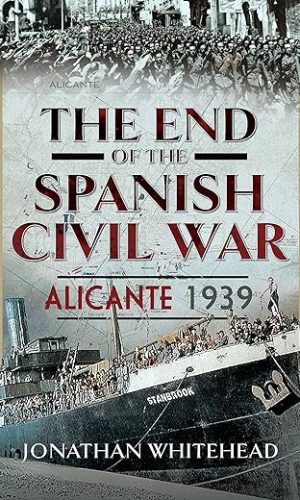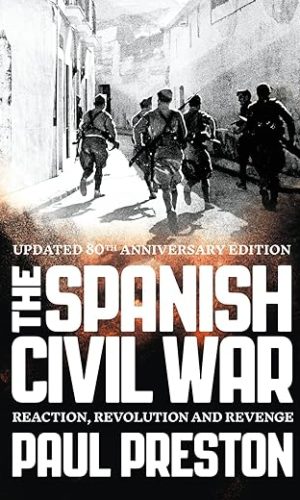Portugal & Spain
-
The Crusades Through Arab Eyes (Saqi Essentials)
European and Arab versions of the Crusades have little in common. For Arabs, the twelfth and thirteenth centuries were years of strenuous efforts to repel a brutal and destructive invasion by barbarian hordes. Under Saladin, an unstoppable Muslim army inspired by prophets and poets finally succeeded in destroying the most powerful Crusader kingdoms. The memory of this greatest and most enduring victory ever won by a non-European society against the West still lives in the minds of millions of Arabs today.Amin Maalouf has sifted through the works of a score of contemporary Arab chroniclers of the Crusades, eyewitnesses and often participants in the events. He retells their stories in their own vivacious style, giving us a vivid portrait of a society rent by internal conflicts and shaken by a traumatic encounter with an alien culture. He retraces two critical centuries of Middle Eastern history, and offers fascinating insights into some of the forces that shape Arab and Islamic consciousness today.
Read more
£13.20£14.20The Crusades Through Arab Eyes (Saqi Essentials)
£13.20£14.20 -
The End of the Spanish Civil War: Alicante 1939
The Spanish Civil War ended in Alicante. After Catalonia fell to the Hitler and Mussolini backed military rebellion of Franco’s Nationalists at the outset of 1939, the legitimate Republican government of Dr Negrín was faced with a choice between apparently futile resistance or unconditional surrender to the triumphant Nationalists. Choosing the path of continued defiance until they could force concessions or at least implement a mass evacuation of those Republicans most at risk in Franco’s new Spain, the government withdrew to Elda in the province of Alicante. However, their plans were thwarted by a new rebellion of Republican officers, led by Colonel Segismundo Casado, who resented Negrín’s reliance on the Communist Party and the USSR and believed themselves better equipped to negotiate a peace settlement with Franco. They were misguided, Franco had no wish, and ultimately no need to negotiate. Meanwhile, faced with the imminent risk of arrest by the new junta, the Prime Minister and his cabinet were forced to abandon Spain from the tiny aerodrome of Monóvar. A relatively quiet port on the eastern, Mediterranean coast of Spain, Alicante had remained at some distance from the frontlines throughout the fighting on the ground, but swiftly became a target for Italian bombers operating out of bases in the Balearic Islands. In May 1938, at the height of the air offensive, Italian bombers attacked the marketplace, causing a massacre as tragic as the events in Guernica, yet largely ignored by historians. As the war drew towards its conclusion, Alicante became increasingly significant as attention focused on the plight of the defeated Republicans. In the second half of March 1939, the fronts collapsed, and Madrid finally fell to the insurgents. Tens of thousands of refugees descended on Alicante in the forlorn hope of rescue by French and British ships that had been promised but which failed to materialise. Amid the tragedy, as the British and French governments declined to engage in any humanitarian intervention that might offend Hitler and Mussolini, a single hero emerged; Captain Archibald Dickson, the Welsh master of the Stanbrook who ditched his cargo and transported 3,000 refugees to safety in North Africa. On 30 March 1939, Franco’s vanguard, the Italian ‘Volunteer’ Corps under General Gastone Gambara, occupied a town already under the control of the Fifth Column. Two days later the Generalísimo issued a communiqué from his headquarters in Burgos, declaring that the war was over. The bulk of the Republicans surrounded and captured in the port were marched to an improvised internment camp, known as the Campo de los Almendros (Field of Almond Trees). They were then transferred to the infamous concentration camp at Albatera to share the fate of defeated Republicans across Spain and to undergo the programme of ideological cleansing of the new fascist authorities.Read more
£20.00£23.80The End of the Spanish Civil War: Alicante 1939
£20.00£23.80 -
The Spanish Civil War: Reaction, Revolution and Revenge
UPDATED EDITION
A rousing and full-blooded account of the Spanish Civil War and the rise to prominence of General Franco.No modern conflict has inflamed the passions of both civilians and intellectuals as much as the Spanish Civil War of 1936–39. Burned into our collective historical consciousness, it not only prefigured the imminent Second World War but also ushered in a new and horrific form of warfare that would come to define the twentieth century. At the same time it echoed the revolutionary aspirations of millions of Europeans and Americans after the painful years of the Great Depression.
In this authoritative history, Paul Preston vividly recounts the political ideals and military horrors of the Spanish Civil War – including the controversial bombing of Guernica – and tracks the emergence of General Franco’s brutal but extraordinarily durable fascist dictatorship.
Read more
£11.40£12.30 -
The Spanish Holocaust: Inquisition and Extermination in Twentieth-Century Spain
Selected as the Sunday Times History Book of the Year for 2012, this is a meticulous work of scholarship from the foremost historian of 20th-century Spain.
The culmination of more than a decade of research, ‘The Spanish Holocaust’ seeks to reflect the intense horrors visited upon Spain during its ferocious civil war, the consequences of which still reverberate bitterly today.
The brutal, murderous persecution of Spaniards between 1936 and 1945 is a truth that should have been told long ago. Paul Preston here offers the first comprehensive picture of what he terms “the Spanish Holocaust”: mass extra-judicial murder of some 200,000 victims, cursory military trials, torture, the systematic abuse of women and children, sweeping imprisonment, the horrors of exile. Those culpable for crimes committed on both sides of the Civil War are named; their victims identified.
‘The Spanish Holocaust’ illuminates one of the darkest, least-known eras of modern European history.
Read more
£3.70£12.30




